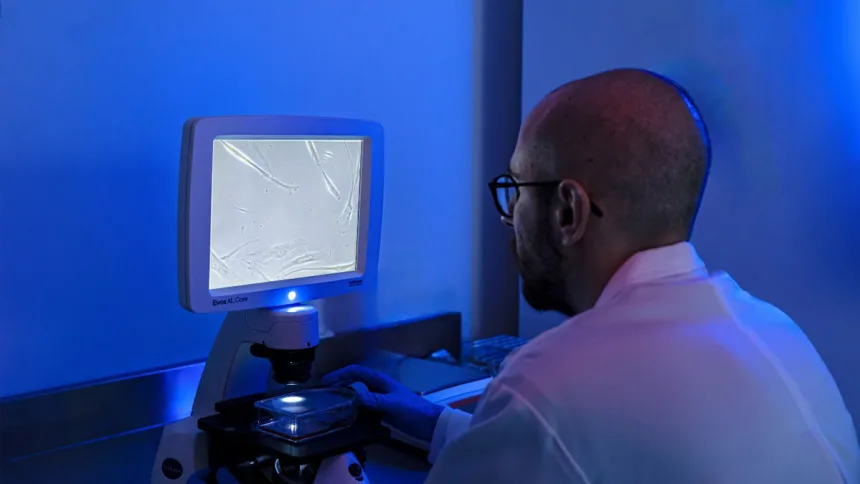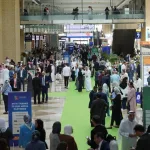Abu Dhabi, UAE- January 2025-The Abu Dhabi Stem Cells Center (ADSCC) has successfully developed clinical-grade induced pluripotent stem cells (iPSCs) that comply with the Good Manufacturing Practice protocols and are, as such, compliant with the strictest international standards for clinical applications. This has been accomplished by the scientists at ADSCC’s research laboratories in Abu Dhabi using their virus-free in-house, exclusive techniques, know-how and protocols. The achievement, the first of its kind in the Middle East, positions ADSCC as a pioneer in stem cell research, setting a global benchmark for innovation and safety in precision medicine.
iPSCs are a cutting-edge innovation in biomedical science, to be used for a wide range of therapeutic applications, including the treatment of neurodegenerative diseases such as Parkinson’s, Alzheimer’s, and multiple sclerosis, as well as other conditions such as diabetes. ADSCC is currently running multiple research projects for the use of iPSCs in treating these diseases.
Derived by reprogramming adult cells, such as skin and blood cells, back to an embryonic-like state, iPSCs can differentiate into many types of cells in the human body. Moreover, iPSCs can be created from a patient’s own cells, allowing for autologous, personalized therapies that minimize or even eliminate the risk of immune rejection and the need for immunosuppressive drugs.
“Developing our own clinical-grade iPSCs using a proprietary, virus-free protocol is a monumental step forward for the UAE and the global medical community. This accomplishment not only reinforces Abu Dhabi’s position as a hub for cutting-edge medical research, but also opens the door to transformative therapies that can address some of the most complex diseases.’’ Said Professor Yendry Ventura, CEO of ADSCC
Also Read : ADSCC performs first CAR-T Cell Therapy to treat Lupus in the Middle East
“Induced pluripotent stem cells are a cornerstone of personalized medicine. By creating iPSCs from a patient’s own cells, we can generate therapeutic cells tailored to their needs. For example, iPSCs can be differentiated into neural (brain) stem cells for patients with neurodegenerative conditions that could be injected back through intracerebral transplantation in the brain and spinal cord or into pancreatic cells for diabetes.’’ Said Professor Angelo Vescovi, Advisor at ADSCC
As part of its efforts in iPSCs research, ADSCC announced last December 2023 a joint research agreement with Kyoto University’s Center for iPS Cell Research and Application (CiRA) and Japan-based biotech company Rege Nephro. The collaboration aims to develop a groundbreaking treatment for diabetes using pancreatic beta cells derived from human iPSCs. These cells are reprogrammed to replicate the tissue affected by diabetes, enabling innovative therapies for type 1 diabetes and novel drug screening for type 2 diabetes. To support this mission, ADSCC has established a laboratory at Kyoto University in Japan and is currently undergoing discovery work in both Abu Dhabi and Japan laboratories.



















